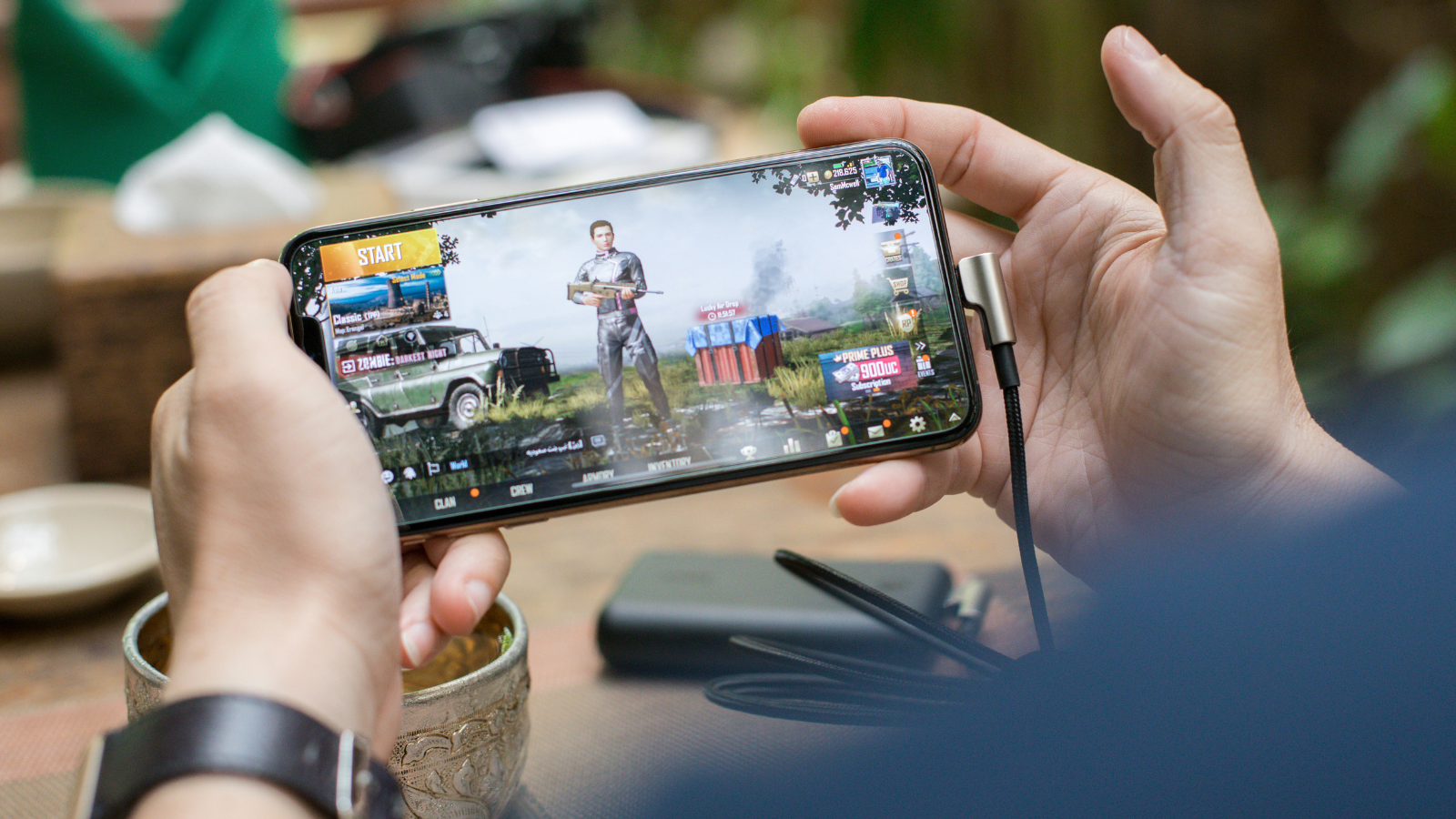 Augmented Reality (AR) technology, represented by games like Pokémon Go and Harry Potter: Wizards Unite, amplifies user experience. Cross-platform play, as seen in Fortnite, increases accessibility, while context-based games such as The Walking Dead: Our World deepen player involvement. These technological innovations dictate the evolution of mobile gaming, forging a path towards immersive, adaptable, tech-driven gameplay.
Augmented Reality (AR) technology, represented by games like Pokémon Go and Harry Potter: Wizards Unite, amplifies user experience. Cross-platform play, as seen in Fortnite, increases accessibility, while context-based games such as The Walking Dead: Our World deepen player involvement. These technological innovations dictate the evolution of mobile gaming, forging a path towards immersive, adaptable, tech-driven gameplay.Popular Genres in Mobile Gaming
In mobile gaming, the rise in technological advancements allows different genres to capture gamers’ interest worldwide. Endless runner games, typified by Temple Run, remain popular. Puzzle games, such as Candy Crush Saga, offer engagement and quick wins. Strategy games like Clash of Clans engage players in tactical decision-making while simulation games, including The Sims Mobile, provide various gameplay dynamics. Collectively, these genres demonstrate the wide range of experiences available in modern mobile gaming.
Monetization Strategies in Mobile Gaming
Mobile gaming monetization hinges on diverse strategies that prioritize user experience, engagement, and loyalty. From in-app purchases in games like Candy Crush Saga to subscription services in titles such as Fortnite, value-packed offers drive revenues. Advertisements, another prevalent approach, generate income through user interaction with displayed content. Freemium models further illustrate the diverse nature of these strategies, encouraging users to pay for premium features or content within free games. Collectively, these strategies have not only maximized revenue but also enhanced the overall gaming experience, leading to an increase in active players worldwide.The Role of Social Interaction in Mobile Games
It’s undeniable that social interaction forms a core aspect of today’s mobile games. Players appreciate not only the challenge a game presents but also how it connects them with friends and like-minded individuals. Real-time chats, leaderboards, multiplayer modes, and social network sharing are prominent features, serving to enhance player engagement. Indeed, the allure lies not only in conquering game challenges but also in sharing these triumphs, fostering a sense of community among players. This community spirit amplifies the gaming experience and, by extension, bolsters the game’s popularity.
Challenges and Considerations
As mobile gaming continues to evolve, so do its challenges and considerations. These include maintaining user privacy without compromise, combatting generic content in a saturated market, and harnessing cutting-edge technology for high-quality real-time gaming experiences. Balancing user engagement and monetization strategies, managing game development costs, improving multiplayer features, and enhancing social networking opportunities represent additional aspects that game makers must consider. Understanding these challenges aids in developing comprehensive solutions for a more immersive and rewarding user journey, thereby sustaining the mobile gaming industry’s continual growth.Future of Mobile Gaming
Mobile gaming’s landscape is ever-evolving, driven by the advent of 5G, augmented reality, and cross-platform play. These advancements have not only amplified the gaming experience but also opened up new revenue streams through in-app purchases, ads, and freemium models. Yet, it’s not just about the technology or monetization. The social aspect plays a pivotal role in boosting player engagement and building a sense of community among gamers. Amid these exciting developments, challenges persist. Game makers must ensure user privacy, combat generic content, and leverage cutting-edge technology for seamless real-time experiences.Mobile Gaming Trends
Augmented reality (AR) remains at the forefront of mobile gaming trends, transforming user experiences through immersive gameplay. Examples include Pokémon Go and Harry Potter: Wizards Unite. Cross-platform play grows, uniting players across different device types and operating systems, as seen in Fortnite. Context-based games have also surged in popularity, offering experiences tailored to real-world locations, weather, and user behaviors. One example stands out: The Walking Dead: Our World. Furthermore, with the proliferation of 5G, gamers anticipate significantly reduced lag times, enhancing real-time gameplay. In summary, mobile gaming sees a shift towards more immersive, adaptable, and advanced gaming experiences.
transforming user experiences through immersive gameplay. Examples include Pokémon Go and Harry Potter: Wizards Unite. Cross-platform play grows, uniting players across different device types and operating systems, as seen in Fortnite. Context-based games have also surged in popularity, offering experiences tailored to real-world locations, weather, and user behaviors. One example stands out: The Walking Dead: Our World. Furthermore, with the proliferation of 5G, gamers anticipate significantly reduced lag times, enhancing real-time gameplay. In summary, mobile gaming sees a shift towards more immersive, adaptable, and advanced gaming experiences.
Technology Innovations Shaping Mobile Gaming Trends
 Augmented Reality (AR) technology, represented by games like Pokémon Go and Harry Potter: Wizards Unite, amplifies user experience. Cross-platform play, as seen in Fortnite, increases accessibility, while context-based games such as The Walking Dead: Our World deepen player involvement. These technological innovations dictate the evolution of mobile gaming, forging a path towards immersive, adaptable, tech-driven gameplay.
Augmented Reality (AR) technology, represented by games like Pokémon Go and Harry Potter: Wizards Unite, amplifies user experience. Cross-platform play, as seen in Fortnite, increases accessibility, while context-based games such as The Walking Dead: Our World deepen player involvement. These technological innovations dictate the evolution of mobile gaming, forging a path towards immersive, adaptable, tech-driven gameplay.Popular Genres in Mobile Gaming
In mobile gaming, the rise in technological advancements allows different genres to capture gamers’ interest worldwide. Endless runner games, typified by Temple Run, remain popular. Puzzle games, such as Candy Crush Saga, offer engagement and quick wins. Strategy games like Clash of Clans engage players in tactical decision-making while simulation games, including The Sims Mobile, provide various gameplay dynamics. Collectively, these genres demonstrate the wide range of experiences available in modern mobile gaming.
Monetization Strategies in Mobile Gaming
Mobile gaming monetization hinges on diverse strategies that prioritize user experience, engagement, and loyalty. From in-app purchases in games like Candy Crush Saga to subscription services in titles such as Fortnite, value-packed offers drive revenues. Advertisements, another prevalent approach, generate income through user interaction with displayed content. Freemium models further illustrate the diverse nature of these strategies, encouraging users to pay for premium features or content within free games. Collectively, these strategies have not only maximized revenue but also enhanced the overall gaming experience, leading to an increase in active players worldwide.The Role of Social Interaction in Mobile Games
It’s undeniable that social interaction forms a core aspect of today’s mobile games. Players appreciate not only the challenge a game presents but also how it connects them with friends and like-minded individuals. Real-time chats, leaderboards, multiplayer modes, and social network sharing are prominent features, serving to enhance player engagement. Indeed, the allure lies not only in conquering game challenges but also in sharing these triumphs, fostering a sense of community among players. This community spirit amplifies the gaming experience and, by extension, bolsters the game’s popularity.
Challenges and Considerations
As mobile gaming continues to evolve, so do its challenges and considerations. These include maintaining user privacy without compromise, combatting generic content in a saturated market, and harnessing cutting-edge technology for high-quality real-time gaming experiences. Balancing user engagement and monetization strategies, managing game development costs, improving multiplayer features, and enhancing social networking opportunities represent additional aspects that game makers must consider. Understanding these challenges aids in developing comprehensive solutions for a more immersive and rewarding user journey, thereby sustaining the mobile gaming industry’s continual growth.Future of Mobile Gaming
Mobile gaming’s landscape is ever-evolving, driven by the advent of 5G, augmented reality, and cross-platform play. These advancements have not only amplified the gaming experience but also opened up new revenue streams through in-app purchases, ads, and freemium models. Yet, it’s not just about the technology or monetization. The social aspect plays a pivotal role in boosting player engagement and building a sense of community among gamers. Amid these exciting developments, challenges persist. Game makers must ensure user privacy, combat generic content, and leverage cutting-edge technology for seamless real-time experiences.Mobile Gaming Trends
Augmented reality (AR) remains at the forefront of mobile gaming trends, transforming user experiences through immersive gameplay. Examples include Pokémon Go and Harry Potter: Wizards Unite. Cross-platform play grows, uniting players across different device types and operating systems, as seen in Fortnite. Context-based games have also surged in popularity, offering experiences tailored to real-world locations, weather, and user behaviors. One example stands out: The Walking Dead: Our World. Furthermore, with the proliferation of 5G, gamers anticipate significantly reduced lag times, enhancing real-time gameplay. In summary, mobile gaming sees a shift towards more immersive, adaptable, and advanced gaming experiences.
transforming user experiences through immersive gameplay. Examples include Pokémon Go and Harry Potter: Wizards Unite. Cross-platform play grows, uniting players across different device types and operating systems, as seen in Fortnite. Context-based games have also surged in popularity, offering experiences tailored to real-world locations, weather, and user behaviors. One example stands out: The Walking Dead: Our World. Furthermore, with the proliferation of 5G, gamers anticipate significantly reduced lag times, enhancing real-time gameplay. In summary, mobile gaming sees a shift towards more immersive, adaptable, and advanced gaming experiences.
Technology Innovations Shaping Mobile Gaming Trends
 Augmented Reality (AR) technology, represented by games like Pokémon Go and Harry Potter: Wizards Unite, amplifies user experience. Cross-platform play, as seen in Fortnite, increases accessibility, while context-based games such as The Walking Dead: Our World deepen player involvement. These technological innovations dictate the evolution of mobile gaming, forging a path towards immersive, adaptable, tech-driven gameplay.
Augmented Reality (AR) technology, represented by games like Pokémon Go and Harry Potter: Wizards Unite, amplifies user experience. Cross-platform play, as seen in Fortnite, increases accessibility, while context-based games such as The Walking Dead: Our World deepen player involvement. These technological innovations dictate the evolution of mobile gaming, forging a path towards immersive, adaptable, tech-driven gameplay.Popular Genres in Mobile Gaming
In mobile gaming, the rise in technological advancements allows different genres to capture gamers’ interest worldwide. Endless runner games, typified by Temple Run, remain popular. Puzzle games, such as Candy Crush Saga, offer engagement and quick wins. Strategy games like Clash of Clans engage players in tactical decision-making while simulation games, including The Sims Mobile, provide various gameplay dynamics. Collectively, these genres demonstrate the wide range of experiences available in modern mobile gaming.
Monetization Strategies in Mobile Gaming
Mobile gaming monetization hinges on diverse strategies that prioritize user experience, engagement, and loyalty. From in-app purchases in games like Candy Crush Saga to subscription services in titles such as Fortnite, value-packed offers drive revenues. Advertisements, another prevalent approach, generate income through user interaction with displayed content. Freemium models further illustrate the diverse nature of these strategies, encouraging users to pay for premium features or content within free games. Collectively, these strategies have not only maximized revenue but also enhanced the overall gaming experience, leading to an increase in active players worldwide.The Role of Social Interaction in Mobile Games
It’s undeniable that social interaction forms a core aspect of today’s mobile games. Players appreciate not only the challenge a game presents but also how it connects them with friends and like-minded individuals. Real-time chats, leaderboards, multiplayer modes, and social network sharing are prominent features, serving to enhance player engagement. Indeed, the allure lies not only in conquering game challenges but also in sharing these triumphs, fostering a sense of community among players. This community spirit amplifies the gaming experience and, by extension, bolsters the game’s popularity.
Challenges and Considerations
As mobile gaming continues to evolve, so do its challenges and considerations. These include maintaining user privacy without compromise, combatting generic content in a saturated market, and harnessing cutting-edge technology for high-quality real-time gaming experiences. Balancing user engagement and monetization strategies, managing game development costs, improving multiplayer features, and enhancing social networking opportunities represent additional aspects that game makers must consider. Understanding these challenges aids in developing comprehensive solutions for a more immersive and rewarding user journey, thereby sustaining the mobile gaming industry’s continual growth.
